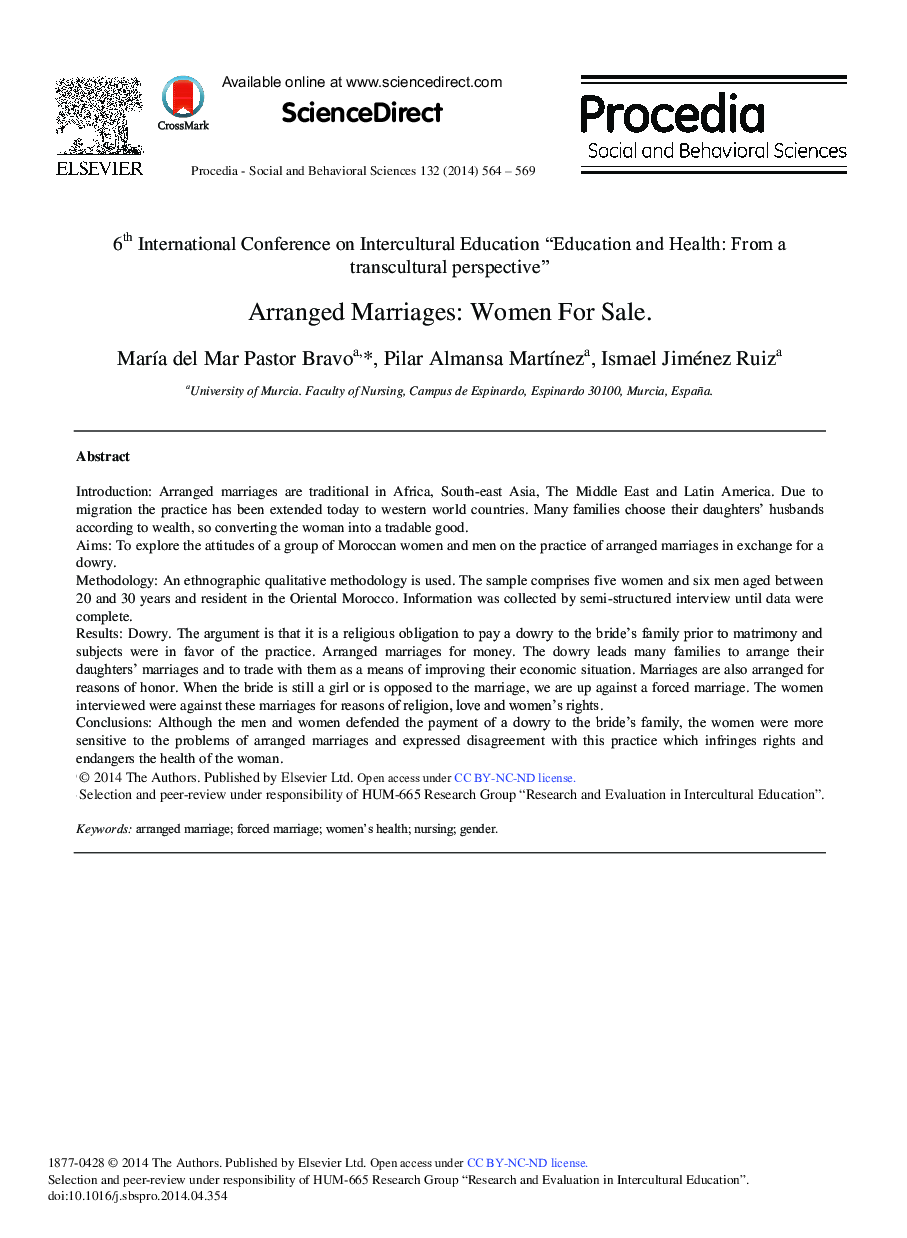| Article ID | Journal | Published Year | Pages | File Type |
|---|---|---|---|---|
| 1114699 | Procedia - Social and Behavioral Sciences | 2014 | 6 Pages |
IntroductionArranged marriages are traditional in Africa, South-east Asia, The Middle East and Latin America. Due to migration the practice has been extended today to western world countries. Many families choose their daughters’ husbands according to wealth, so converting the woman into a tradable good.AimsTo explore the attitudes of a group of Moroccan women and men on the practice of arranged marriages in exchange for a dowry.MethodologyAn ethnographic qualitative methodology is used. The sample comprises five women and six men aged between 20 and 30 years and resident in the Oriental Morocco. Information was collected by semi-structured interview until data were complete.ResultsDowry. The argument is that it is a religious obligation to pay a dowry to the bride's family prior to matrimony and subjects were in favor of the practice. Arranged marriages for money. The dowry leads many families to arrange their daughters’ marriages and to trade with them as a means of improving their economic situation. Marriages are also arranged for reasons of honor. When the bride is still a girl or is opposed to the marriage, we are up against a forced marriage. The women interviewed were against these marriages for reasons of religion, love and women's rights.ConclusionsAlthough the men and women defended the payment of a dowry to the bride's family, the women were more sensitive to the problems of arranged marriages and expressed disagreement with this practice which infringes rights and endangers the health of the woman.
